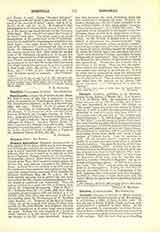

Domnus Apostolicus (DOMINUS APOSTOLICUS), a title applied to the pope, which was in most frequent use between the sixth and the eleventh centuries. The pope is styled Apostolic because he occupies an Apostolic see, that is, one founded by an Apostle, as were those of Ephesus, Philippi, Corinth, etc. (cf. Tertullian, De praescript., xxxvi). Rome being the only Apostolic Church of the West, Sedes apostolica meant simply the Roman See, and Domnus Apostolicus the Bishop of Rome. In Gaul, however, as early as the fifth century the expression sedes apostolica was applied to any episcopal see, bishops being successors of the Apostles (cf. Sidonius Apollinaris, Epp., lib. VI, i, etc.). By the sixth century the term was in general use, and many letters from the Merovingian kings are addressed Domnis sanctis et apostolicd sede dignissimis. Thus the bishops of Gaul were given the title of Domnus Apostolicus (cf. Venantius Fortunatus, “Vita S. Mart.”, IV; “Formulae Marculfi”, II, xxxix, xliii, xlix). Many examples are also found in wills and deeds (e.g. P.L., LXXX, 1281, 1314, etc.), and one occurs in a letter of introduction given by Charlemagne to St. Boniface (Epp. Bonifac., xi). However, in the Acts of Charlemagne and of the councils held during his time, even outside the Frankish Empire, as in England, the term Domnus Apostolicus, in its exact usage, meant simply the pope. Perhaps the only example of it found in Greek authors is in the second letter of Theodore the Studite to Leo III, kurio apostoliko. Long before this, however, the word Apostolicus alone had been employed to designate the pope. Probably the earliest example is in the list of popes compiled at the time of Pope Vigilius (d. 555), which begins “Incipiunt nomina Apostolicorum” (P.L., LXX VIII, 1405). The expression recurs frequently in documents of the Carlovingian kings, as well as in Anglo-Saxon writings. Claude of Turin gives a curious explanation—Apostoli custos. At the Council of Reims held in 1049 the Bishop of Compostela was excommunicated “quia contra fas sibi vendicaret culmen apostolici nominis” (because he wrongly claimed for himself the prestige of an Apostolic name), thinking himself the successor of St. James the Greater, and it was thereupon laid down “quod solus Romanus Pontifex universalis Ecclesi e Primas esset et Apostolicus” (that only the pontiff of the Roman See was primate of the universal Church and Apostolicus). Today the title is found only in the Litany of the Saints. There are also the expressions apostolicatus (pontificate) and the ablative absolute apostolicante (during the pontificate of). It is to be noted that in ecclesiastical usage the abbreviated form domnus signifies a human ruler as against Dominus, the Divine Lord. Thus at meals monastic grace was asked from the superior in the phrase Jube Domne benedicere, i.e.: “Be pleased sir to give the blessing.”
U. BENIGNI

